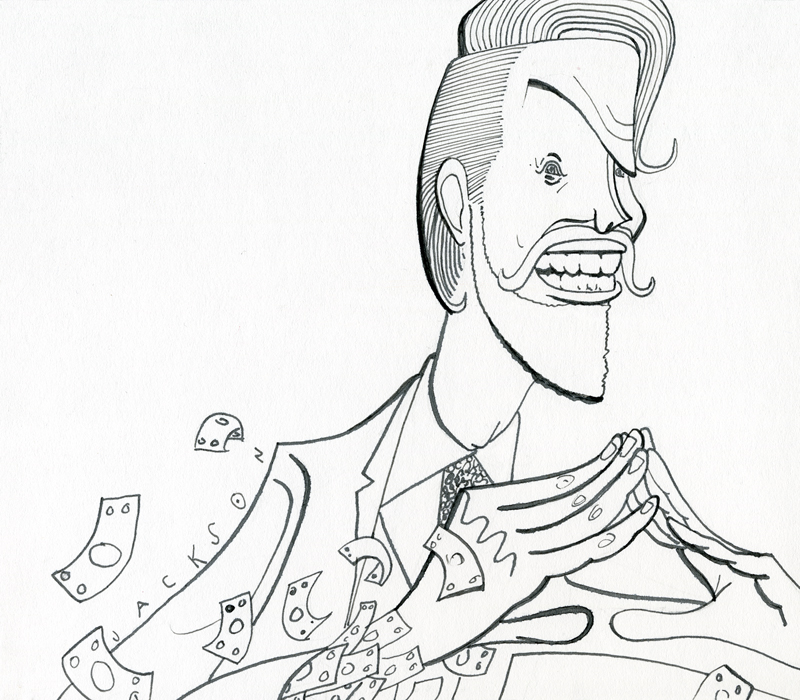
Nikolai Gogol’s 1835 satire THE GOVERNMENT INSPECTOR is written in five acts, but the Idiopathic Ridiculopathy Consortium’s production, directed by Tina Brock, plays as if it was one continuous scene, charging onward like a raging droshky.
A two-story wall painted with the massive faces of colorful, old-fashioned playing cards acts as a mechanical backdrop, with a collection of hinged doors, windows, and portholes cut into it. Designed by Lisi Stoessel, this allows multiple levels of action and plenty of silly business, as characters lean out of windows, poke their head through holes, or enter in rapid succession.
Power-hungry provincial mayor (Jack Tamburri*) receives a letter announcing the impending arrival of an incognito government inspector. He rounds up his slavish junior officials to berate them for their corrupt practices in an attempt to hide his own terror at being caught out. Tamburri delivers an athletic display of two-facedness, leaping from rage to terror back to righteous indignation and incredulity.
Khlestakov (Andrew Carroll), the man they take to be an inspector, is a good-for-nothing gambler, a charming young man with varying luck. When the mayor comes to see him, he first thinks he is going to be arrested for not paying his hotel bill, but quickly adapts to his unusual position of power. In a central scene, each of the junior officials takes a turn approaching Khlestakov to bribe him. Ignorant to their mistake, he perceives their fawning attention as deference to his intimidating stature. He leans in close to a terrified school superintendent, putting his foot up on the man’s chair. “Yes, I suppose there is something in my eyes that makes people go a bit weak at the knees.” Without a change of expression or tone, he changes course: “You couldn’t lend me three hundred roubles, I suppose?”
Khlestakov could be (and has been, over 180 years of productions) seen in a million different ways: he could be cynical, deliberate, diabolical; he could be fumbling and idiotic; he could be boyish and lovable. Carroll’s take is not so much innocent as willfully ignorant, snapping at any advantage. Like an dog eating itself to death, he lives only in the moment, with no conception of history or future. Carroll plays Khlestakov like Khlestakov (and all of the other characters here) would like to be played: as if he is the gallant hero of the story.
Carroll is backed by a great cast of actors for the farce—Jennifer MacMillan as the mayor’s hysterical wife, in particular, sets a grotesque counterpart to her frantic husband, while Francesca Piccioni balances MacMillan out as the gloomy daughter.
The constant smokescreen of accusations and excuses obfuscates reality in this town, and a production could sink quickly in the mire of teasing out what’s real and what isn’t—or who’s corrupt and who’s not. Brock chooses instead to let each line exist in the present, with its character believing that what they say is the closes possible thing to truth. If they are lying, they themselves barely have the faculties to realize it. The result is a production that forefronts Gogol’s surprising, desperate, hypnotizing dialogue.
[Walnut Street Theatre Studio 5, 825 Walnut Street, 5th floor] February 2-28, 2016; idiopathicridiculopathyconsortium.org.
*Disclosure: The reviewer is currently working with Jack Tamburri on an upcoming play.
